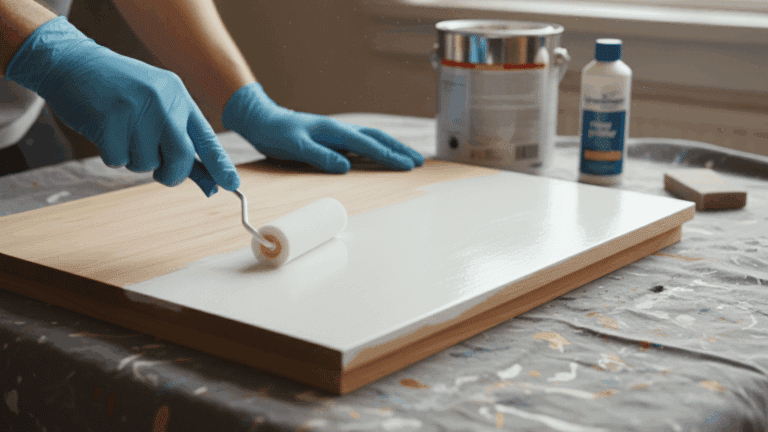Many parents and adults know the frustration. The “R” sound seems impossible to master, and it’s one of the trickiest sounds in English.
Children might say “wabbit” instead of “rabbit,” or adults may feel self-conscious about their speech patterns. R speech impediment challenges can be overcome with the right approach and techniques. People can learn to produce clear, confident R sounds at any age.
This blog will show you exactly what makes the R sound so difficult to master. You’ll learn about tongue placement, airflow, and muscle coordination.
Why is the ‘R’ Sound So Difficult?
The most recognizable speech impediment involves substituting “W” for “R” sounds. This happens because both sounds share similar lip positions, making the swap feel natural.
Two main causes drive these errors. Phonological issues occur when the brain struggles to organize speech sounds correctly.
Articulatory problems happen when the tongue muscles can’t move into the proper positions for R production.
Most children master the R sound between ages 5-6.
However, some may need until age 8. Parents should consider speech therapy if their child still struggles with R sounds after age 6, especially if it affects their confidence or communication.
Science-Backed Exercises to Improve R Sound Production
Research shows specific exercises help people master the r speech impediment more effectively.
Visual cues guide tongue placement, while auditory games train the ear to hear differences between correct and incorrect R sounds.
| Activity | Focus | Example |
|---|---|---|
| Visual & Tongue Cues | Use mirrors, gestures, and lifts | Show tongue curl, tongue holds |
| Word Practice | Use minimal pairs and tongue twisters | “Red” vs “Wed,” “Red roses rock” |
| Reading Activities | Emphasize R sounds during storytelling | “Brown Bear, Brown Bear” |
| Games & Hunts | Find R objects to make practice fun | Rocks, ribbons, radios |
| Digital Tools | Use apps to guide and track progress | Speech therapy apps |
Consistent daily practice produces better results than longer, infrequent sessions.
When and Why to Consult a Speech Therapist?

Speech therapists offer specialized help when home practice isn’t enough to address an r speech impediment. Many families find professional guidance speeds up progress and prevents bad habits from forming.
What to Expect in an Evaluation
The first visit involves a comprehensive assessment of speech patterns. Therapists examine how the tongue, lips, and jaw work together during speech production.
During evaluation, professionals will:
- Test different R sound positions (beginning, middle, end of words)
- Check oral motor skills and muscle strength
- Assess hearing to rule out auditory processing issues
- Review family history and medical background
- Observe social communication skills
Popular Therapy Techniques
Modern speech therapy uses several proven methods to treat R sound difficulties. Each technique targets different aspects of speech production, from muscle memory to visual learning.
Speech therapists often combine multiple approaches to match each client’s learning style and specific needs.
| Technique | Description |
|---|---|
| PROMPT Technique | Uses gentle facial/neck touch cues to guide tongue and lip placement. |
| Visual Phonics | Employs hand signals and symbols to link gestures with correct R sounds. |
| Traditional Articulation | Builds R sounds step-by-step from isolation to conversation in structured settings. |
How Early Intervention Impacts Long-Term Speech Clarity
Starting therapy early makes a significant difference in outcomes. Young brains adapt faster to new speech patterns than older ones.
Benefits of early treatment include:
- Faster progress and shorter therapy duration
- Better self-confidence in social situations
- Reduced risk of reading and writing difficulties
- Prevention of compensatory speech habits
Children who receive help before age 8 typically show more improvement than those who start later.
Parent-Friendly Tips to Tackle R Speech Difficulties
Creating a supportive home environment makes speech impediment practice feel natural and stress-free. Families can turn everyday moments into opportunities for R sound improvement without making it feel like formal lessons.
1. Environment-based corrections
Use gentle reminders during regular conversations. Instead of saying “wrong,” try “let’s try that R sound again” with a smile. Make corrections feel like a fun game rather than criticism.
2. Word games and play-based prompts
Turn car rides into R-word competitions. Play “I Spy” focusing on R objects, or create silly rhymes with R words. Board games and cooking activities offer natural chances to practice R sounds.
3. Tracking small wins
Keep a simple chart or use stickers to mark progress. Celebrate when someone uses five clear R sounds during dinner or reads a page with good R pronunciation. Small rewards keep motivation high.
Wrapping Up
Overcoming an r speech impediment takes time, patience, and consistent effort.
It’s a ride that unfolds gradually, not a quick fix that happens overnight. Every family’s experience will look different, but the key ingredients remain the same.
Consistency and support make all the difference in this process. Each small success builds toward lasting improvement and greater confidence.
Parents and individuals shouldn’t get discouraged by setbacks.
Start with simple exercises today, celebrate small wins, and remember that clear speech is absolutely achievable with the right approach and dedication.
















